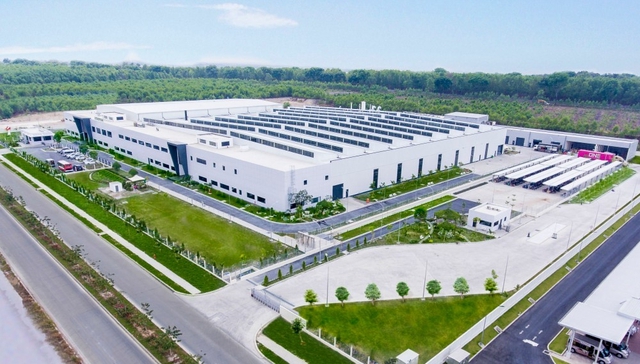Around 91% of German companies intend to expand production in Viet Nam
VGP - Up to 91 percent of German companies intend to continue to invest in or expand their production in Viet Nam, while approximately 40 percent of them plan to increase their workforce over the next 12 months.

The above information was noted in the German Industry and Commerce in Viet Nam (AHK)'s report, which is themed "World Business Outlook Spring 2023-Viet Nam Focus".
German businesses in Viet Nam express more confidence on their business development and have positive expectations on economic growth than they did in the fall of 2022.
Economic Expectation
According to AHK, thanks to the implementation of immediate government action plans and the presence of stable macroeconomic conditions, Viet Nam has maintained positive economic growth.
As a result, German companies operating in Viet Nam are more optimistic than they were in the fall 2022, although their short-term expectation remains cautions, due to the geopolitical challenges such as inflation, decoupling and the increasing political influence on supply chains.
Around 88 percent of the surveyed participants are confident with their business situation in Viet Nam (satisfying and good) and nearly half of the German participants in the survey expect the economic growth to remain consistent, while 21 percent of them believe it to be better.
Risks and Challenges
Despite German enterprises show resilience and have high expectations in the Vietnamese market, they still identified several risks and challenges to their business development caused by global economic fluctuations.
These risks include low global demand (51 percent), concerns regarding the economic policy framework (46 percent), a shortage of skilled workforce (34 percent), and potential disruptions in the supply chain (28 percent).
Added to this are long-term geopolitical challenges, which companies see particularly in inflation/money policy (41 percent), fragmentation of the global economy (41 percent) and increase in political influence on supply chain (40 percent).
Outlook: Diversifying Manufacturing Supply Chains
Despite the challenges, Viet Nam is expected to experience a resurgence in its economic growth in the medium-term.
This growth will be fueled by various factors including the free trade agreements, notably the EU-Viet Nam Free Trade Agreement (EVFTA), the implementation of the China plus One strategy, the global trend of shifting and diversifying manufacturing supply chains towards competitive hubs in Southeast Asia, and the inflow of green investments.
About 57 percent of German companies in Viet Nam prioritize diversifying their supply chains, with Viet Nam being their top choice, followed by Malaysia and Thailand.
Recommendation
To further strengthen the attractiveness for an accelerated investment environment, AHK suggested Viet Nam make collaborative efforts to address the potential shortage of skilled workforce by equipping them with German-standard skills, capitalizing on Industry 4.0 and digital transformation.
The nation should prioritize strengthening local suppliers to maintain its role in the global and German supply chain, while complying with sustainable development regulations such as Environment Social Governance (ESG) and German Supply Chain Due Diligent Act.
Concretization and implementation of Power Development Plan VIII are recommended to incentivize renewable power production, the AHK recommended.
Simplifying, digitalizing and streamlining administrative procedures are vital to leverage the EVFTA and enhance Viet Nam's business and investment environment./.

